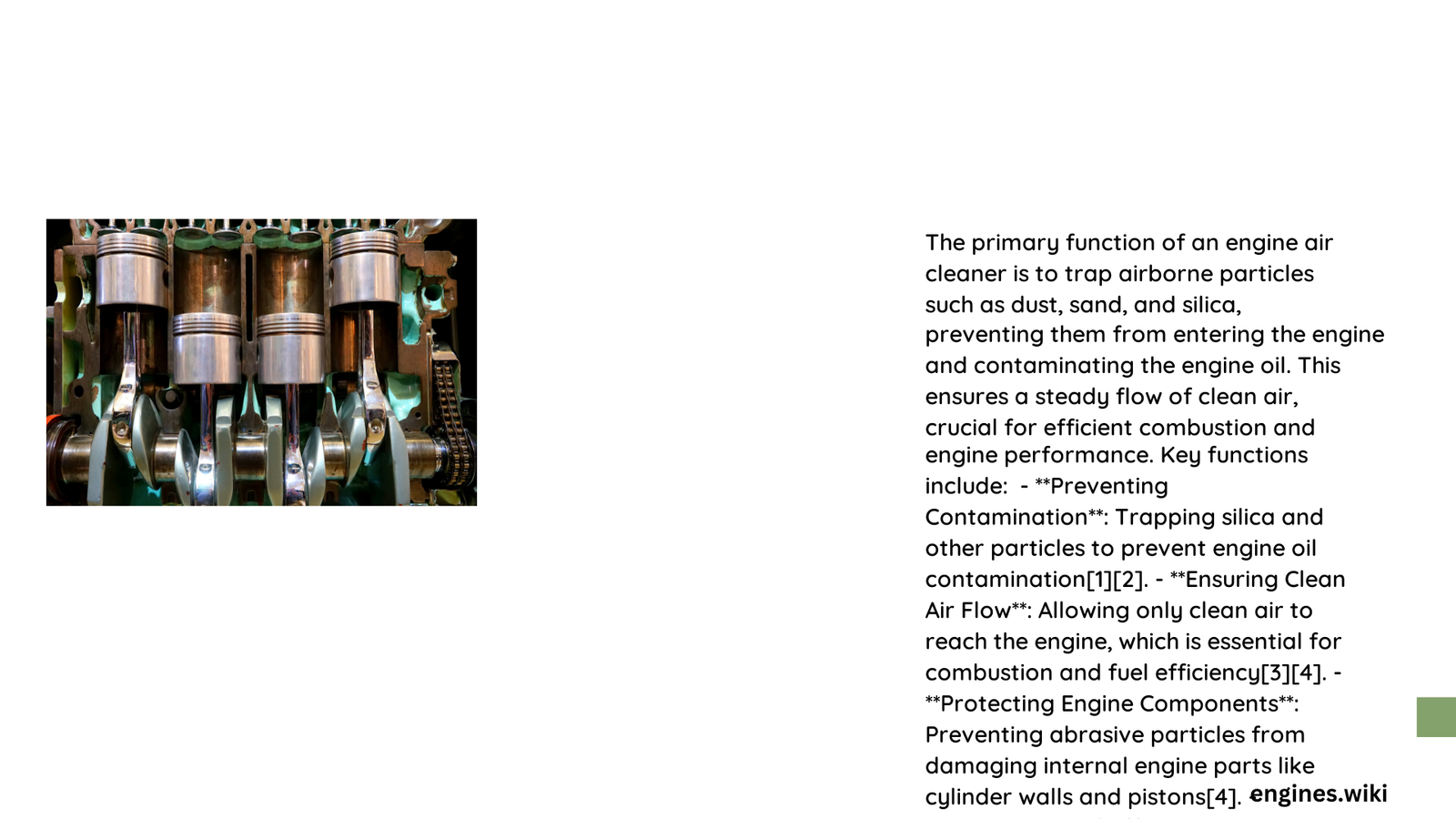Modern vehicle engines rely on precise air filtration systems to maintain optimal performance and longevity. The air cleaner serves as a critical defense mechanism, preventing microscopic contaminants from entering the engine’s sensitive internal components. By filtering out dust, debris, and particulate matter, air cleaners ensure clean air intake, which directly impacts fuel efficiency, power output, and overall engine health.
What Does an Air Cleaner Do in an Engine?
How Does Air Filtration Protect Engine Components?
Air cleaners act as a sophisticated barrier between external environmental contaminants and the engine’s internal mechanisms. Their primary functions include:
- Particle Removal: Trapping particles as small as 0.3 microns
- Airflow Regulation: Maintaining optimal air-to-fuel mixture
- Debris Prevention: Blocking harmful contaminants from engine internals
Filtration Efficiency Metrics
| Particle Size | Filtration Capability | Impact on Engine |
|---|---|---|
| 0.3-5 microns | 99.97% removal | Prevents microscopic damage |
| 5-10 microns | 95% removal | Protects critical engine parts |
| >10 microns | 80% removal | Reduces potential wear |
What Happens Without Proper Air Filtration?
Without an effective air cleaner, engines face significant risks:
- Accelerated Wear: Abrasive particles cause premature component degradation
- Reduced Performance: Restricted airflow decreases horsepower
- Increased Fuel Consumption: Inefficient combustion process
- Potential Catastrophic Failure: Long-term damage to pistons, cylinders, and valves
How Often Should Air Cleaners Be Maintained?
Recommended maintenance intervals vary based on driving conditions:
- Normal Driving: Replace every 15,000-30,000 miles
- Dusty Environments: Replace every 10,000-15,000 miles
- Performance Vehicles: Inspect every 5,000-10,000 miles
What Are the Economic Implications of Air Cleaner Maintenance?
| Maintenance Action | Cost | Potential Savings |
|---|---|---|
| Regular Filter Replacement | $20-$50 | $500-$2,000 in potential engine repairs |
| Annual Inspection | $0-$50 | Prevents catastrophic engine failure |
Can Different Types of Air Cleaners Impact Performance?
Air cleaners come in multiple configurations:
- Paper Filters: Standard replacement, moderate efficiency
- Foam Filters: Reusable, high dust retention
- Cotton Gauze Filters: High airflow, performance-oriented
- Synthetic Filters: Advanced particle separation technology
What Technical Factors Determine Air Cleaner Effectiveness?
Key performance indicators include:
- Pressure Drop: Minimal resistance to airflow
- Filtration Rating: Micron-level particle capture
- Material Durability: Resistance to environmental conditions
- Airflow Capacity: Matching engine respiratory requirements
Conclusion

The function of air cleaner in engine represents a critical yet often overlooked maintenance aspect. Proper selection, regular inspection, and timely replacement ensure optimal engine performance, fuel efficiency, and long-term reliability.
Reference:
- https://www.beachwheels.com.au/the-role-of-air-filters-in-engine-performance/
- https://www.xtramileautocare.com/blog/how-does-a-clogged-air-filter-affect-engine-performance
- https://mospart.com/the-importance-of-an-engine-air-filter-for-optimal-performance/
